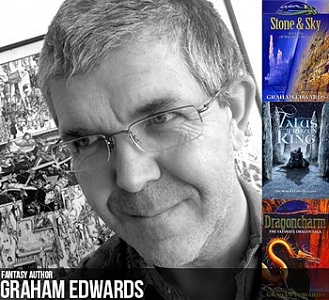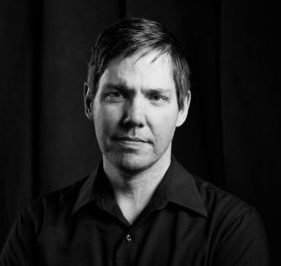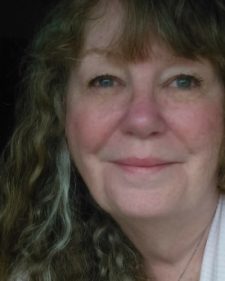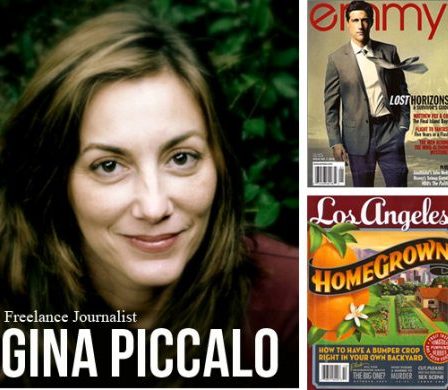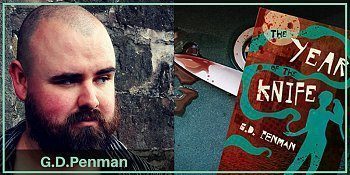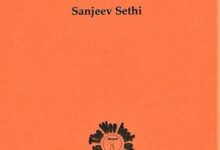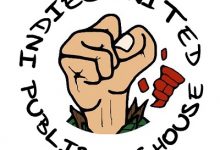Interview with Poet Laureate of West Caldwell (New Jersey), Diane Lockward
In honor of National Poetry month, we had the privilege of interviewing Diane Lockward. Diane is the Poet Laureate of West Caldwell, New Jersey. She’s headed several poetry festivals over the years and is the author of several collections of her poetry. She has also authored a poetry workshop book on the craft.
With years of experience under her belt and vast poetic wisdom, take a look at this wonderful interview with Diane Lockward!
Hi Diane, thanks for taking the time to answer our questions today! Please tell us a little bit about yourself.
When did you first become interested in writing poetry?
I came late to poetry. I dabbled in other genres, none of which did the trick for me. I began writing poetry when I responded to a call for volunteers to test the assignments for a poetry textbook being written by William Stafford. From the first assignment, I was hooked. I’d found my genre. I was a full-grown adult at that point, teaching high school English and raising three children. I’ve kept at the poetry ever since.
Has it been a personal form of catharsis for you over the years?
Absolutely. And I think that’s why I was so quickly pulled in. There was an emotional release in writing poetry that I hadn’t experienced with any other kind of writing. For the first few years each time I’d begin to read one of my drafts aloud, I’d begin to cry. It didn’t matter what the subject of the poem was or whether it was sad or funny. The tears came, I think, just from the joy of writing and the force of saying things I’d never said before. I was speaking with a new voice. The tears were those of a newborn.
What is your favorite subject to write about and why?
I’m often referred to as a poet of food and food is certainly a favorite topic, perhaps because I was a terribly fussy eater as a child, a real source of trouble at the dinner table. Also my husband was in the restaurant business for many years. And of course, I eat everyday so food is often on my mind, not just as food but also as metaphor. What does this banana look like? What does this shrimp remind me of? However, I write many more poems about other topics than I do about food.
What is your favorite form of poetry? Least favorite? Why?
I’m most drawn to lyric poetry in free verse. I like the freedom and the music. But I also like formal poetry for the challenge of the rules and the pleasure of breaking those rules. I also like narrative poetry as long as it sings. So far I have not been drawn to haiku or its related forms such as tanka or haibun.
Do you have a special place where you write your poetry? How did you find this place?
The kitchen table in my house. I’m often thinking of lines and images in the morning and always reading poetry as I have my cornflakes. So I keep pen and paper there in case a line or image comes to mind. If I don’t write it down, I lose it. Sometimes once I get the thought down I just keep going with it. My kitchen table is a horrible mess.
In the midst of your busy schedule, what is something you do that relaxes you and keeps you stress-free?
Going for walks with music on my iPod. I find that very relaxing and an added bonus is that while I’m walking I am sometimes working on a difficult line in my head and manage to get it worked out. Also, sometimes the music suggests something. A final benefit is that as long as I walk regularly I can eat as many cookies as I want.
Aquilo asks: As a female poet, have you faced any gender bias toward your poetry?
If I have, it’s been behind my back and it can stay there.
Inkwellness asks: As a fellow poet, I am curious about what drives you. What inspires you as a person and what inspires your writing? Are the two analogous?
No, I don’t think they’re analogous. My writing is inspired by something inside of me that needs to speak and be heard (or read). It’s also inspired by other poets’ writing. When I’m having a dry spell, I need to read someone else’s poetry and I need to go to readings and hear other poets’ voices. As a person and a member of a poetry community, I’m motivated by the desire to contribute to that community. I’m not one of those poets who wants you to come to my reading but won’t go to yours or wants you to buy my book but won’t buy yours. I have run a poetry festival for a dozen years and for ten years have run a reading for women poets during National Poetry Month. I put out a Poetry Newsletter each month. And I recently began a small poetry press, Terrapin Books, so I can help other poets publish books. Having said all this, now I’m thinking that perhaps what drives me as a person and what drives me as a poet are analogous.
PiP asks: Do you write poetry for yourself or for the reader?
I write it for myself first, speaking out of some need or interest or curiosity or anger or joy. I write to find out what it is I have to say. But I revise for the reader. I don’t write and put the writing in a drawer. I want a readership, an audience.
Aquilo asks: If you could recommend one poem to be taught in schools to inspire the next generation of poets, what would it be?
Oh, that’s way too hard a question. Just one? I love John Donne, Robert Frost, Yeats, Mary Oliver, Sharon Olds. I’ve learned different things from each of them. I think they should all be taught. In general, I’ll add that there’s not enough poetry being taught in our public schools, but now I’m in danger of giving a speech. I also want to add that I strongly support exposing young people to contemporary poetry and to providing them with opportunities to write their own poetry. There’s no better way to instill a love of language in students.
When you run into writer’s block, what are some of the things you do to help you get back into your creative flow?
First of all, I don’t believe in writer’s block. I don’t expect myself to write every day. Sometimes I need to daydream. Sometimes I need to do some research. Sometimes I need to read someone else. Sometimes I need to do the laundry or push a vacuum cleaner. I truly believe that if I’m patient the poems will come. But I also know that I need to make time for my own writing. That’s been on the back burner lately as I’ve been reading manuscripts for my new press. But I know that I will return to my kitchen table and pick up the pen.
HarperCole asks: “Hi there, Diane! Do you feel your poetic style has changed in the past decade? If so, in what ways?
Somewhat. I’m consciously looking for new topics. After you’ve written a big bunch of poems over a number of years, it’s almost inevitable that you’ll start repeating yourself. There’s an obsessive nature to some topics, but I don’t want to keep writing versions of the same poem which I’ve seen a number of poets do. I’ve also been working on trying new techniques as well as working on forms I haven’t used before.
Jenthepen asks: I enjoy the humor and fearlessness that is so evident in all your poetry but the one that made me stop in wonder and admiration was “Implosion” from your new collection, Temptation by Water. The poem has such a well-worked analogy between the two ideas (the way a heart breaks and the way a building is demolished) that it made me wonder which thought came first; which idea inspired the poem?
One correction: Temptation by Water is no longer my “new collection” — it’s my last collection collection. The new one is The Uneaten Carrots of Atonement which just came out in February. I don’t always remember the source of a poem, but I do remember the source for the poem “Implosion.” I was lying in bed one morning watching the early news. I saw the implosion of a building, I think in Florida. It was a remarkable image, the building just falling in on itself. And I thought that that was how people sometimes fall apart, from the inside, a collapsing inside, the heart shattering and the fragments sinking into a pile. The image and the idea haunted me. They wouldn’t go away. When that happens, you know you have a poem to work on. And I did just that.
How have you found running your own press company? What are some of the challenges you’ve faced since its start?
It’s very exciting and challenging. Initially there were the legal requirements such as forming an LLC. Then creating a website. Opening up a bank account for the press, getting checks, ordering a rubber stamp (essential equipment). By far the most challenging part of the process has been learning how to format a book. I purchased recommended software for that, asked questions of people who had answers, and can now proudly say that I can format a book. Then I needed to get on Submittable and create the first open reading period for manuscript submissions. I spent many hours reading the submissions and have now selected four for upcoming publication. But the first book will be an anthology called The Doll Collection. That will be out very soon. So it’s moved sort of like a turtle, but it’s making its way to the finish line. The other challenge I already mentioned: finding time for writing my own poems.
am_hammy asks: What inspired you to compile your latest poetry book The Uneaten Carrots of Atonement?
Once I had close to enough poems for a new book, I started thinking of how I might organize the poems. I was hungry for a new book as it had been more than six years since my last one. Eventually I came up with the idea of atonement as the organizing principle. Then there was a long, difficult process of arranging the poems into an order I liked. Most poets find this difficult. Me too.
What is your favorite poem from the book and why?
Hard to choose a favorite. That’s sort of like choosing a favorite child. But one my readers seem to like and comment on is “Original Sin.”
Who are three of your favorite poets? Why?
That’s also a hard question. John Donne among poets from the past. He turned me on to the beauty of metaphors. Yeats is gorgeous. Right now I’m reading Meg Day’s work and am sure she’ll become one of my favorites among contemporary poets.
PiP asks: What advice can you offer to new poets?
Just keep on pushing forward. Put your heart down on the page. Learn the craft and use it to tame your heart’s outpouring. Go forth boldly. Be persistent.
Where can we go to find out more about you and your latest poetic works?
My blog: http://dianelockward.blogspot.com
My website: www.dianelockward.com
I send out a monthly Poetry Newsletter that includes craft tips, a model poem and prompt, links. It’s free! Anyone interested can sign up at my blog. There’s a sign-up form in the right sidebar.
The Uneaten Carrots of Atonement is available at Amazon: http://www.amazon.com/Uneaten-Carrot…sap_bc?ie=UTF8
The Crafty Poet: A Portable Workshop is available at Amazon: http://www.amazon.com/Crafty-Poet-Po…sap_bc?ie=UTF8

